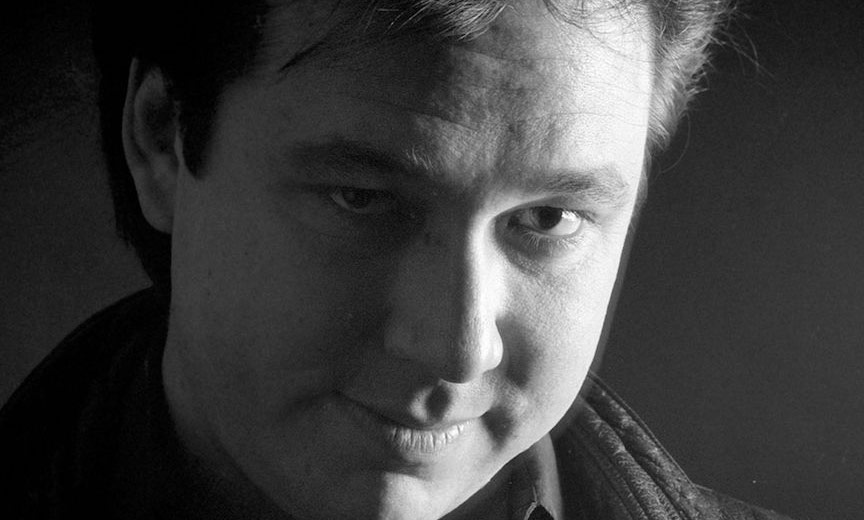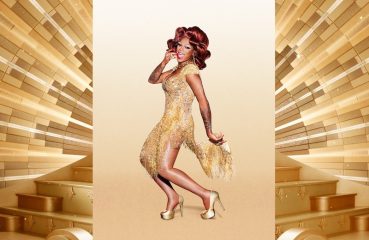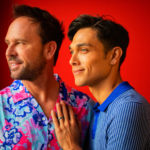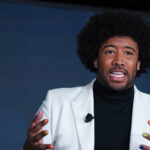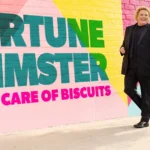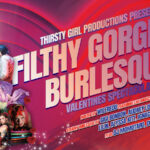Kevin avidly follows the career of a comic that he’s sure will leave his mark on the world of comedy — until he’s unexpectedly derailed on his path to stardom.
Since I’ve spent much of my career covering actors, musicians and stage celebrities, people often ask if I knew someone was going to be famous long before they made it big. The short answer is: yes.
Sometimes it’s been an artist who broke through the sensory overload of pop culture. A dozen years ago, I approached a deejay in a Seattle bar and requested “Rehab” by Amy Winehouse. He looked up and asked, “Who’s Amy Winehouse?” More recently, I had the same trouble getting anyone to play a dance track called “I Love It,” by Icona Pop that I found on an obscure European podcast. Six months later, I heard it blaring from every Australian nightclub I visited, and a year later, America fell for it, too.
But when an artist becomes part of your life, it’s not just a guessing game. You see their struggles, witness their insecurities, cringe at their failures and remain hopeful that with a little luck, some kingmaker will see what I see and pronounce them a star.
Find LGBTQ-Friendly Resources[wpp range=”all” cat=’16259′ thumbnail_width=75 thumbnail_height=50 limit=4 stats_views=0]
No one was ever a more safe bet than my friend, the comic Bill Hicks. When I met Bill in the early ‘80s, he was still too young to drink in many of the clubs he played. I had to sneak him into a nearby bar to chat after catching his set for the first time, and was gobsmacked to learn he’d already been performing for half a decade.
Read Next | Why Does America Need a Black Pride Celebration?
Hicks On the Rise
Bill would go on to appear nearly a dozen times on Late Night with David Letterman, to be featured prominently in comedy shows like HBO’s One Night Stand, and to shoot several specials and films of his own. Comics adored him because his mind was so sharp and his delivery dead on. But he also became something of a poster boy for the disaffected youth of the grunge generation — those ‘90s kids handed a world where consumerism carried more caché than critical thinking.
I was with Bill one sunny afternoon when he met one of his heroes, a well-known club circuit veteran named Jay Leno. Bill came away giddy from the encounter. But by the time Leno took over The Tonight Show a few years later, Bill couldn’t hide his disgust at how Leno (as Hicks saw it) had squandered his talent, tamed his act and sold his soul in exchange for the luxuries of celebrity life. Hicks found a way to turn even that into comedy.
“I have a bet with my friends about exactly when he’s going to blow his Dorito-shilling head off his shoulders,” Hicks would say of Leno — to the delight of his audiences. “I think it’s going to be while interviewing Joey Lawrence. ‘Drivin’ yet, Joey? Are ya drivin’?’” Bill would say, imitating Leno’s staccato chatter. “And then he’s suddenly going to realize what a complete mockery he’s made of his life, pull out a big black shotgun and put it in his mouth. And… we’ll be right back after commercial.”
Bill was fearless. He’s the only person I’ve ever seen lay into the very ticket buyers who put money in his pockets — scolding them for sleepwalking through their lives, as nothing more than zombies trudging from one empty purchase to another to remain anesthetized. “Is there anyone here in the house tonight in marketing?” he’d often ask. “If so, please kill yourself. Now.”
Read Next | A Porn Star’s Friend Speaks out on Sex Work Shame, PTSD and Suicide
Off the Rails
His hostility would empty a room, but Hicks only took that as a challenge. The house manager would turn on the outside mic, and Bill would start to deliver his best lines to people simply passing by an enormous glass window. Soon, the room would be nearly full again. I saw this happen not once but several times.
Hicks was also deeply spiritual — though not at all the Protestant his parents raised him to be. When people would approach him after a show to grouse about his jabs at the religious right, he’d shrug, “Well, you’re Christians: Forgive me.”
In my earliest reviews of his shows, I referred to him as “the Jim Morrison of comedy.” He always made it well worth a trip into the dark caverns of his mind. “Comedy,” Hicks once explained, “is jazz thinking.” And nobody ever played a better solo.
Shooting Star
When Bill was diagnosed with pancreatic cancer, he kept his schedule and didn’t let anyone outside his inner circle know until the very end. Eventually, he moved back in with his parents, called a few friends to say goodbye, and then quit speaking entirely for the last two weeks of his life. Later, Letterman welcomed Bill’s Mom to his show and aired the final set Bill had filmed for Letterman — which never aired due to censors’ concerns about references to Christian conservatives and abortion. That night Letterman apologized for agreeing to cut the set, saying: “There was absolutely nothing wrong with that.”
These days, Bill’s work has seeped into the mainstream. His biopic streams on TV, his routines are easy to find on YouTube and elsewhere, and Amazon will give you a few choices of Bill Hicks tee shirts if you like. I take some comfort that my instincts about Bill were correct. He may have been only 32 when he died, but by then he was already being compared to America’s greatest satirists, comedians and philosophers — people like Lenny Bruce, Richard Pryor and Mark Twain. His life was tragically short, but in his time he worked comedy like the genre was invented for him.
Read Next | A New Medical Study Links Ibuprofen to Testicle Damage
Forgive the quality, but here is Bill’s last appearance on the David Letterman show — shown posthumously with his mother present to accept Letterman’s apology for cutting Hicks’ set, which was deemed too edgy at the time.
Have you lost a talented friend? Salute that person’s memory in our Gay Voices section.
Want Metrosource LGBTQ content notifications? Sign up for MetroEspresso.

Read Next | Find and Connect with LGBTQ Friendly Plastic Surgeons in New York
Last modified: July 25, 2019

